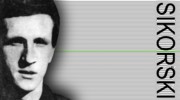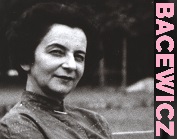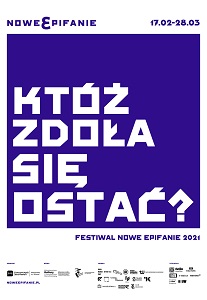 "Who is able to stand?" is the slogan of the 12th edition of the New Epiphanies International Festival organised by the Centre for the Thought of John Paul II, a cultural institution of the Capital City of Warsaw. This year's edition will be held online between 17 February and 28 March 2021. The programme features nine theatre premieres, a series of early music concerts, workshops and a culinary event.
"Who is able to stand?" is the slogan of the 12th edition of the New Epiphanies International Festival organised by the Centre for the Thought of John Paul II, a cultural institution of the Capital City of Warsaw. This year's edition will be held online between 17 February and 28 March 2021. The programme features nine theatre premieres, a series of early music concerts, workshops and a culinary event.
Last year's edition was interrupted by the pandemic. The organisers are curious how the artists will interpret the theme of the Festival this year. Behind the festival events stand new and exciting artistic discoveries as well as insights and ideas that allow one to move on, even from the most difficult position. The main theme of the 12th edition is the apocalypse understood both in the literal sense as a revelation, and in the sense given to it by tradition – as a catastrophe. Michał Senk, director of the Centre for the Thought of John Paul II, points out: "The leitmotif of this year's Festival – the apocalyptic 'Who is able to stand?' – is an opportunity to face the subject of the End Times in conditions in which we see that the biblical vision is penetrating directly into our reality”.
This year's theatrical programme consists of nine premieres, including Cassandra (21 February) directed by Zofia Gustowska with music by the guitarist and composer Michał Lazar. "In this year's early music programme, we look at different ends of the world: the extinction of genres, instruments and styles," emphasize Sonia Wronkowska and Łukasz Kozak, curators of the music programme. The futuristic approach, i.e. the biblical apocalypse, is just one of the possible interpretations of the theme of the Festival. The humanistic approach, in turn, draws attention to the fate of individual people, for example, great musicians falling victim to an epidemic. In history, we have experienced the great extinction of the clavichord or viola da gamba, Polish traditional music or the Earth's ecosystems. Stylistic breakthroughs brought an end to some music genres, and allowed others to develop”.
All Festival events – including the free ones – are ticketed.
Full programme is available at: www.noweepifanie.pl








 Witold Lutosławski's 10 Polish Dances, Andrzej Krzanowski's Symphony No. 2, and Martyna Kosecka's Clarinet Concerto will make up the programme of the February edition of the "Resounds. New Polish Music" series on 27 February 2021 at 8.00 p.m. A pre-concert meeting with Martyna Kosecka, Szymon Bywalec and Magdalena Stochniol (music theorist), hosted by Agata Kwiecińska, will start at 7:00 p.m. Both the meeting and the concert will be live streamed on Sinfonia Varsovia’s
Witold Lutosławski's 10 Polish Dances, Andrzej Krzanowski's Symphony No. 2, and Martyna Kosecka's Clarinet Concerto will make up the programme of the February edition of the "Resounds. New Polish Music" series on 27 February 2021 at 8.00 p.m. A pre-concert meeting with Martyna Kosecka, Szymon Bywalec and Magdalena Stochniol (music theorist), hosted by Agata Kwiecińska, will start at 7:00 p.m. Both the meeting and the concert will be live streamed on Sinfonia Varsovia’s  The National Forum of Music invite you on 28 February 2021 at 6 p.m. to a concert featuring 20th-century choral music. We will hear diverse works by four composers, performed by the NFM Choir conducted by Lionel Owl.
The National Forum of Music invite you on 28 February 2021 at 6 p.m. to a concert featuring 20th-century choral music. We will hear diverse works by four composers, performed by the NFM Choir conducted by Lionel Owl. 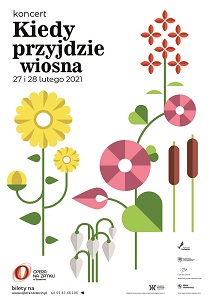
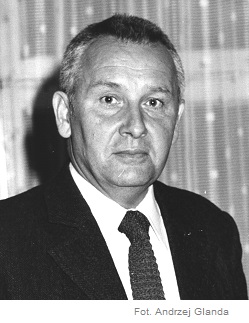 The contemporary Polish composer Henryk Mikołaj Górecki was one of the admirers of Wagner's work. The drama about the history of legendary lovers is reflected in one of his last, unfinished compositions: Two Tristan Postludes and Chorale, Op. 82, which will be performed on 27 February 2021 at 6.00 p.m. at the Warsaw Philharmonic.
The contemporary Polish composer Henryk Mikołaj Górecki was one of the admirers of Wagner's work. The drama about the history of legendary lovers is reflected in one of his last, unfinished compositions: Two Tristan Postludes and Chorale, Op. 82, which will be performed on 27 February 2021 at 6.00 p.m. at the Warsaw Philharmonic.  A special edition of POLIN Music Festival will be held online on 26-28 February 2021. Premieres of the concerts will take place at the
A special edition of POLIN Music Festival will be held online on 26-28 February 2021. Premieres of the concerts will take place at the  The Artur Malawski Philharmonic in Rzeszów invites you to a symphonic concert on 26 February 2021 at 7.00 p.m.
The Artur Malawski Philharmonic in Rzeszów invites you to a symphonic concert on 26 February 2021 at 7.00 p.m. 
 On 26 February 2021 at 7 p.m., three weeks after the premiere of "Adela" – the latest album of the duo Aleksander Dębicz and Łukasz Kuropaczewski, the Szczecin Philharmonic invites you to a unique concert in the place where the album was recorded – the Symphony Hall of the Philharmonic.
On 26 February 2021 at 7 p.m., three weeks after the premiere of "Adela" – the latest album of the duo Aleksander Dębicz and Łukasz Kuropaczewski, the Szczecin Philharmonic invites you to a unique concert in the place where the album was recorded – the Symphony Hall of the Philharmonic. 